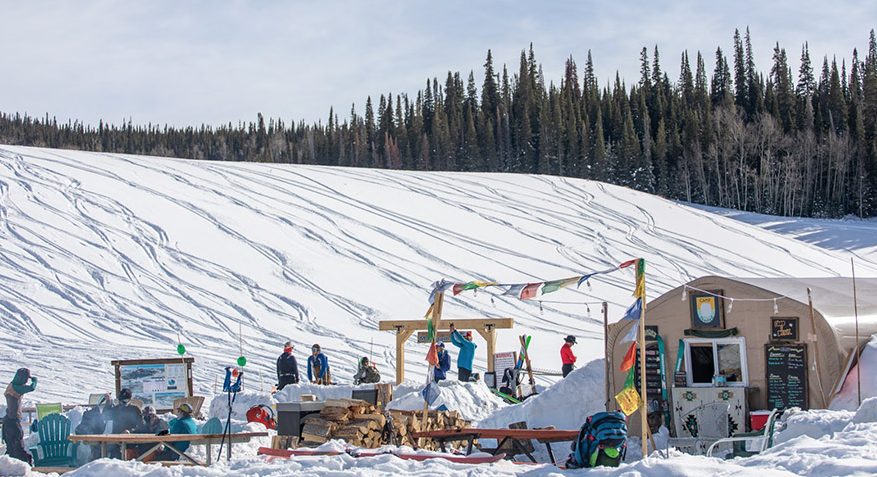Bluebird Backcountry, which describes itself as a “human-powered ski area,” has apparently run out of human power and is permanently closing. Following three winters of operations in Colorado, the company said it started proving demand for its “backcountry lite” concept but must close after running out of financial runway on its way to profitability.
Bluebird Backcountry claimed to be the first in the world to open a full-service alpine ski area without chairlifts. The company’s promise of avalanche-free backcountry skiing went viral in January 2020 when Bluebird’s founders announced they had secured a location and insurance to try the model. The company’s stated aim was to make a “dangerous and often exclusive sport” more welcoming and accessible, according to past press releases, by “reducing barriers to entry, improving gaps in education and creating a soulful gathering place for the backcountry skiing community.”
Following a Kickstarter campaign and pilot seasons run primarily by volunteers, Bluebird moved its operation to Bear Mountain, unlocking access to 1,200 private acres on a ranch between Kremmling and Steamboat Springs, CO. The mountain opened to the public on December 31, 2020, making it the first new ski area in Colorado since Silverton Mountain in 2002.
Bluebird sold access passes, rented equipment, taught lessons, and offered several other on-site amenities with a backcountry twist; the company educated thousands and became one of the largest avalanche education providers in the nation. Over 19,000 new and experienced backcountry skiers and snowboarders visited Bluebird Backcountry worldwide. In March of this year, Bluebird’s busiest day, visitation crested at 300.
“There is no question that countless people had life-changing experiences here,” offered Bluebird Backcountry Co-Founder and CEO Jeff Woodward. “Our team helped inspire and educate the next generation of backcountry travelers, and we introduced a much-needed antidote to the overcrowded and overbuilt ski industry status quo.”
Woodward said that the economy and a slowdown in start-up funding and financing were factors in the company’s decision to close. While Bluebird’s financial model is more lightweight than a traditional resort that invests in chairlifts, permanent buildings and real estate, any venture in the ski industry is cash-intensive, and Woodward says Bluebird would need a multi-year capital partner to keep the business going.
“While it’s heartbreaking to close Bluebird, I’m proud of the experience that we built,” Woodward shared. “We listened and learned about what our community wants. We relentlessly improved our skiing, backcountry education, amenities, and the experience overall. We took a leave-no-trace approach. We hired great people, supported our volunteers and achieved an excellent safety record. Myself and our leadership chose to invest in what we collectively agreed a human-powered ski area needed to be, not just what would extract the most profit. There are many things we would do differently if we started over, but a ‘done right’ communal approach is fundamentally part of the Bluebird Backcountry spirit.”
Photo courtesy Bluebird Backcountry/Justin Wilhelm










